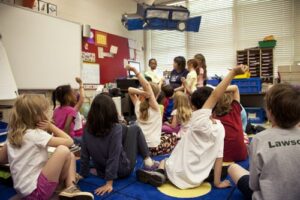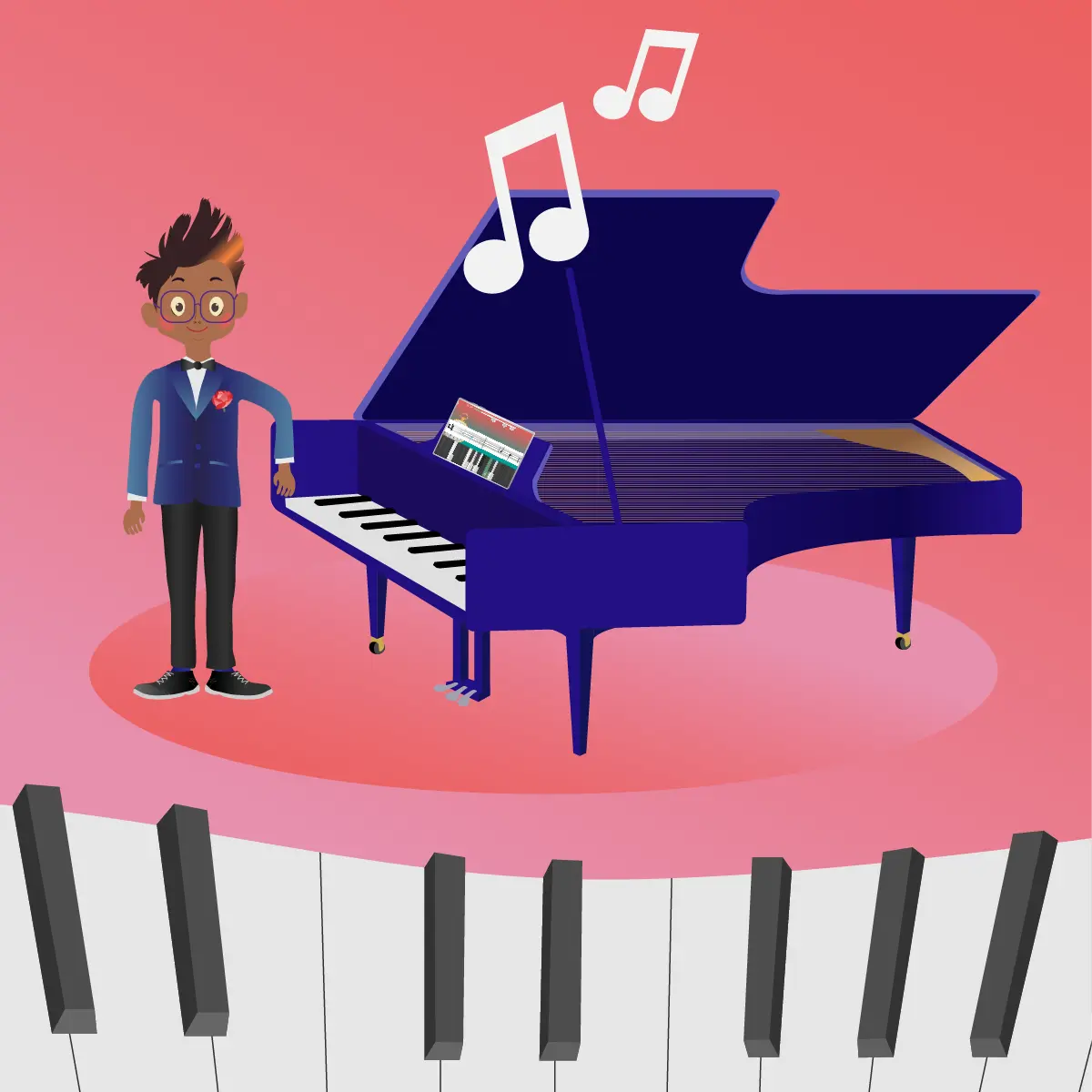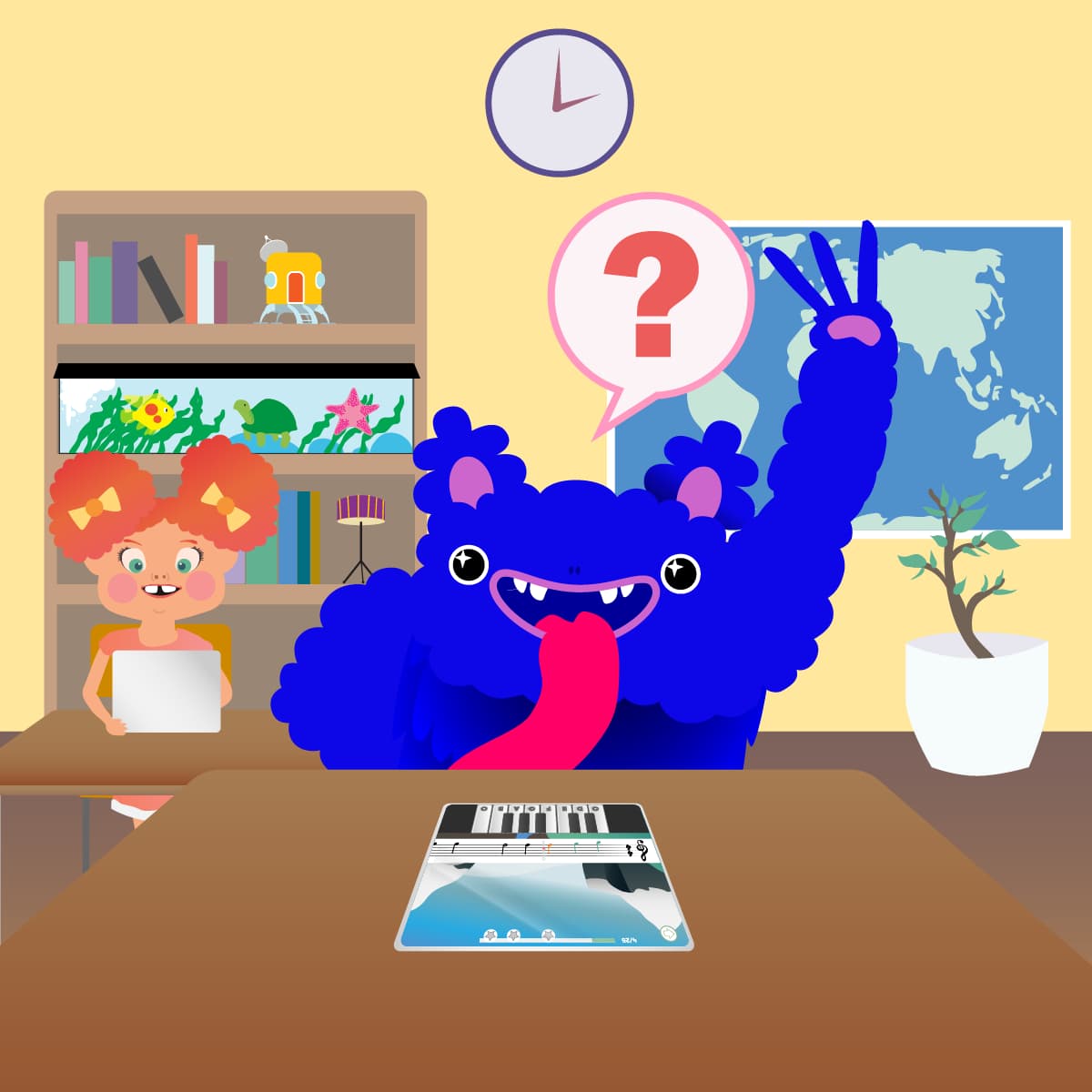By Jonathan Duffy, Arctic Meta
The way educational institutions are able to accommodate the individual needs of students has dramatically improved in the past few decades. Many experts now agree that taking the same approach for every single student and hoping for the best doesn’t really provide the best results. This has led to a deeper understanding of how important it is to meet the needs of each student to develop their strengths and minimise their weaknesses.
The changes of recent times have been a welcomed shift for those who might struggle within the traditional educational framework. It wasn’t that long ago that kids with disabilities were often not afforded the right of a standard education in some parts of the world. There is now a genuine consensus that there are students who genuinely need extra help to complete their schooling, but what exactly does this mean? What is special needs education? How can schools help kids who fall into this category? Read on for more.
What Does ‘Special Education Needs’ Mean?
The term ‘Special Education Needs’ is often abbreviated to SEN, and it refers to a large variety of situations, conditions and disorders that will affect a student’s learning abilities. For many people, the first thing that comes to mind is someone who is disabled, and although differently-abled kids fall into the category of SEN, they’re not the only ones.
The term SEN covers a very large array of things. These can be things like Autism Spectrum Disorder (ASD), ADHD, Neurodivergence, dyslexia, dyscalculia and many other things.
Sometimes there is a physical root cause for the special education needs; other times, there isn’t anything specific. There are a lot of factors in play, like family background, genetics, behaviour and even environments. The easiest way to understand SEN is to see it as the name for any student who might need some extra help to accomplish what is expected of their peers.
How Can Schools Help Children With Special Needs?
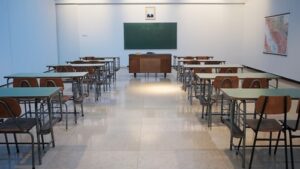
Most schools in the developed world have had some form of SEN intervention program available for a little while now. They’re not always successful, but the intention is always to try to meet the needs of SEN students. It is important to know that when implementing SEN, accommodations need to be made across a broad range of areas within school life.
Schoolwork

To assist kids with special needs, schools need to be aware of what is expected of them at their age level and compare it to what they are actually capable of with the resources that are available to them. Some SEN kids will never be able to achieve what their classmates can, and so that same level shouldn’t be expected of them, but it’s still important that they are challenged. Although their progress might not match other students, they still deserve to be helped to grow and strengthen their abilities.
Reading, Writing, and Number Work
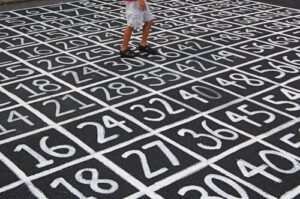
It doesn’t matter what learning capacity a student has; reading, writing and numbers are still the three most important cornerstones of early education. Once again, there are limits depending on what sort of SEN a student has, but any extra assistance they can get to cement these foundational skills is a must.
Encouraging Self Expression
It’s imperative that all children are given the opportunity to express themselves because it helps them to learn about individual identity. Activities where they get to show who they are, who they would like to be and even who they once were, all assist in forming a solid understanding of the self. It helps them to see where they end, and the rest of the world begins. This is particularly important for SEN kids because sometimes their biggest struggle can be coming to terms with the special needs they have that can make them feel different from their classmates. They need time and space to figure this out and learn that it’s ok and it doesn’t make them less than anyone else.
Helping Them to Make Friends
Making friends isn’t something that comes naturally to humans. It involves a series of complex skills that are developed over time. Many of the skills required to successfully make friends and maintain relationships are formed in elementary school. Just like adults, some kids are better at it than others, but often SEN kids have the hardest time developing these skills because they can sometimes be ignored by other kids.
Schools need to make sure they don’t let SEN kids miss out on this vital part of the human experience but facilitating ways to help these students find other kids they connect with, and this shouldn’t just be limited to other SEN kids.
Supporting Organisation

Generally speaking, the main purpose of school is to give young people the skills and knowledge they need to be productive members of society as adults. The definition of productivity can differ depending on the capabilities of the individual, but it’s still integral that all students receive support in developing the ability to organise themselves.
Why Do Children Progress at Different Rates?
There’s no ‘one reason’ for why kids develop at different rates. There is a myriad of factors that can come into play. For example, if two parents are comparing when their children took their first steps, it’s very likely that they will have done it at completely different ages. Most parents and experts would agree that it’s not really important which kid walked first; it’s important that they were able to reach this milestone in the first place.
The reason it’s important to be aware that children develop at different rates is that not every slow period of development means that a child has special education needs. To oversimplify it, some adults remember faces better than names; it doesn’t mean that they have special needs; they just aren’t great at remembering names. They could get better at it with intervention, but it’s not a special need. The same thing happens with kids when they learn. Some go through periods where they don’t seem to get things at the same rate as their peers. It doesn’t mean that alarm bells should be raised.
How to Know When to Help Children With Special Needs?

Although slow periods don’t always signify special needs, there are some signs teachers can look out for and flag for later discussion.
Noticing Differences in Behaviour
Kids normally have a personality of their own between the ages of 3 and 5, and although behaviour obviously changes as they age, dramatic changes in behaviour can be a sign that they need some extra help. Although they might not understand they are doing it, kids will often lash out or act up as a way to deflect attention away from their inability to understand a topic or perform a task.
Assessing the Help Each Child Has

No two kids are ever the same, but comparing kids within the same class to each other can actually be a useful tool for diagnosing possible issues. Most teachers have a knack for understanding what students within their class should be capable of. In general, the benchmark is usually the average students and not the gifted ones.
If a student seems to require much more assistance completing tasks than their peers, it could mean that they just have a skill that needs to be strengthened. If, after receiving a great deal of extra help, they don’t seem to be improving, there might be another underlying issue to explore.
Regular Parent and Teacher Discussions

Open communication between parents and educators is a key tool in discovering if a child might have special needs. All parents know their kids, but the person they are in class and the person they are at home can indeed seem like two different people, especially if they are struggling with their school work and aren’t sure how to ask for help.
Parent and teacher discussions should always be viewed as an opportunity for both parties to learn from each other in order to make the learning journey for the student as fruitful as possible.
What Support is There For Special Needs Children?

There are a lot of different ways that schools can support SEN kids, and they range depending on what special needs the individual child has. There are some examples of the ways SEN can be met below.
Special Classes in Mainstream Schools

This is where students are still members of the general school community and go to the same classes as their peers, but they might have a few different classes depending on the kind of special needs they have. For example, if a student has a condition that affects their ability to read, they might go to a separate class for reading and comprehension, but for other subjects like science and mathematics, they remain with the other children.
Special Schools
Special schools are usually reserved for SEN kids who simply cannot fit into the mainstream education system. They are usually run by staff who have a great deal of expertise in special education, and their curriculums are designed to challenge students and focus on developing essential life skills.
Special Arrangements at Schools For Individuals

Some schools are able to make arrangements on an individual basis to accommodate the needs of SEN kids. Occasionally this might be because the school is in a location that isn’t serviced by a special school. This can mean that the school has a special education unit (SEU) or that the school makes use of support teachers to accompany students in some of their classes.
Education Plans

Education plans for SEN students usually involve teachers, heads of department, medical professionals and parents together to assess what goals the student needs to achieve and how to action these in a realistic way that ensures they get a quality education. One of the main purposes of these plans is normally to figure out what kind of funding can be accessed to make the lives of SEN kids more inclusive.
Transport
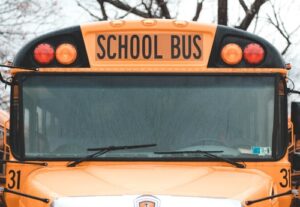
Not every child will eventually reach the point where they are able to go to and from school unassisted. In the developed world, most school systems understand this, and there is often a discounted or free service to help take SEN kids to school and pick them up at the end of the day.
Can EdTech Support Children With Special Needs?

Educational Technology, or EdTech for short, has been given a bit of a boost in the past few years thanks to the pandemic forcing many schools to move to a remote learning model.
Innovations within the EdTech industry have shown that there are many ways in which great EdTech solutions can help improve the educational experience for SEN kids.
Flexible Learning Times

EdTech often uses cloud-based technology to ensure that all educational materials are available 24 hours a day. This doesn’t mean that SEN kids should be expected to be studying until the early hours of the morning, but it does allow for them to focus on their studies when they are at their most productive.
Flexible Learning Locations

Absolutely no child chooses where they are born or where they live. Unfortunately for many SEN kids, the place they live can play a significant factor in the kind of support available to them, particularly if they are in a rural or remote area.
With EdTech, geography is no longer such a defining factor; the only thing they need is a device and a connection to the internet.
Greater Access to More Professional Support
There are far fewer SEN experts in the world than there are regular teachers, and in the past, it was often incredibly difficult to gain access to their expertise and opinions in order to assist SEN kids. Now, these experts can literally be on the other side of the planet and thanks to EdTech, their findings can be used to benefit millions of students. In fact, many SEN experts regularly contribute to the development of new EdTech.
Regular Assessments

EdTech does make it easier to conduct more frequent assessments for SEN students so that teachers and parents can get a great idea of exactly where a student is at with a single glance. Even just standard objective assessments can be automated with the click of a button.
Reduces Anxiety

One of the biggest problems faced by SEN kids is a feeling of constant anxiety. Often they’re not really sure where they fit, what they’re supposed to be doing or how they are supposed to complete tasks when they can’t seem to do them at the same speed as their classmates. EdTech allows all parties involved, including students, to see a clear view of their studies, progress and future lessons, which can greatly reduce the rates of anxiety.
EdTech allows students, parents and teachers to have a clear view of what they are supposed to be learning and when, but it also allows all parties the chance to view and revise information in their own time.
Increases Cognitive Capabilities
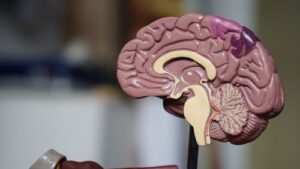
EdTech applications are a great way of enhancing children’s cognitive abilities because they allow them to problem solve and explore on their own terms. The kinds of applications offered by EdTech companies usually have some form of game element to them, so the learning isn’t just beneficial; it’s also something fun that they might even want to do in their free time.
How Mussila Supports Children With Special Needs

Mussila is an EdTech company that was founded on the principle of providing quality educational materials to kids all over the world in a fun and digestible way. Mussila’s products can definitely help to support special needs children, and they are designed to accompany a set curriculum or be used independently.
All of Mussila’s products work under a ‘Learn, Play, Practice, Create’ philosophy which sets up foundations, encourages progress, keeps kids engaged and is actually fun.
The two current Mussila offerings are Mussila Music and WordPlay.
Mussila Music gives students a complete music education, including theory, instruments, composition and performance. Within the application, they can learn everything they need to be able to play and appreciate music without even needing to leave the house.
WordPlay is the newest addition to the Mussila family, and it takes the same award-winning formula that works so well with Mussila Music and applies it to teaching kids how to read, write and comprehend English.
Both of these applications have versions for families and schools and are designed to be adaptable, meaning that for schools, in particular, they can be used to enhance existing programs. The school’s version of each app comes with a teacher’s panel where they can set up work groups, check progress and assign work.
All of Mussila’s applications are great for SEN kids because they allow them to go at their own pace while sparking curiosity and developing their creativity. With just an internet connection, SEN students will gain access to an intuitive learning environment that will give them hours of entertainment while they improve vital skills.
Both apps are available for a free trial to check them out.
Conclusion
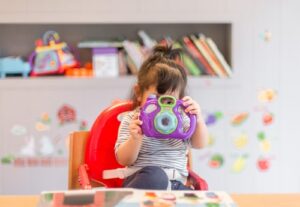
Any parent or teacher would do just about anything in their power to improve the educational outcomes for their SEN students. Although this particular area of education was relatively ignored for a long time, the recent awakening of understanding is good news for anyone who educates or loves someone with special education needs. The future is looking a bit brighter and a lot more inclusive.






